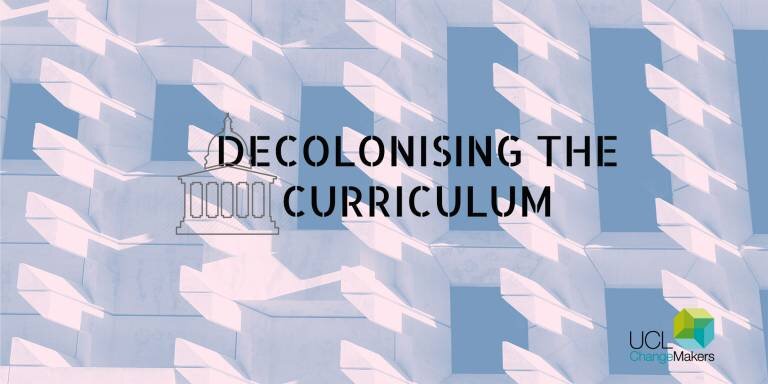UCL hosts Decolonising the Curriculum panel event
Vanessa Tsao reports on the panel event held last week for Decolonising the Curriculum week.
Decolonising the Curriculum Week 2019 started off with a guest panel event on Monday 18th November, featuring academics and activists involved in decolonising curricula in higher education. The panel aimed to investigate what decolonising curricula means, why and when is it important, and what methods can be used to achieve it.
The panel was hosted by Professor Anson McKay, the Vice Dean of Equality, Diversity and Inclusion, and speakers included UCL humanities professor Paul Gilroy, also the founding director of the Centre for the Study of Race and Racism, feminist writer and organiser Lola Olufemi, SOAS senior lecturer in International Relations Meera Sabaratnam and the Students’ Union BME Officer Sandy Ogundele.
Dr. Meera Sabaratnam spoke first and discussed the necessity of her work decolonising education at SOAS: “White supremacy has structured higher education and embedded that specific standpoint from which education takes place… so decolonising means transforming these structures.” Her working group at SOAS first reflected on how teaching practices, research, human resources and student systems need decolonising. The group then took action and created a learning and teaching toolkit, which is now available online for free.
They asked module convenors about their curriculum and whose standpoint it presumes, how many non-western perspectives are included, and their pedagogy when it comes to awareness of the dynamics of racism. SOAS subsequently implemented a compulsory inclusive teaching training and added questions about diversity to module feedback forms.
Professor Paul Gilroy then discussed different waves of the decolonisation movement, focusing in particular on the 3rd and 4th (current) wave, as well as problems in the movement. He described the 3rd wave movement on American college campuses and critiqued its one-size-fits-all solution - a solution only appropriate for postcolonial settler societies where a corrective rendering of history is important. As for the current wave of demands for decolonisation, Dr. Gilroy saw this as, again, imported from the U.S. as a “reheating of US-centred reheating of black nationalism” and it was also “too tailored by social media.” He said: “Rebuilding [the curriculum] now means persisting with the task. We need to challenge nationalism not only in political contexts but everywhere, and the humanistic perspective needs to be expanded.”
The conversation shifted to what a global education now means, as the panel opened up to questions by audience members. Writer and activist Lola Olufemi said that in an increasingly neoliberal education, universities are marketing themselves as shiny builders of a global education, but questioned if they are simply exporting a certain type of knowledge. Dr. Gilroy added that the goal was not to develop a “right” curriculum and expand it from western universities to the world, rather, there should be a focus on local education. “We need to look at the experience of students and institutions from less privileged places, and then we might find that we would have a different conversation of diversity.” Furthermore, he highlighted how crucial it was that the curricula addresses the climate crisis, as it is what connects us together globally.
Panel speakers also debated whether “decolonising” was an appropriate term to use in the UK context. Sandy Ogundele preferred the term “liberating”, but both she and Lola Olufemi felt that they should not get too preoccupied with naming. Meanwhile, Dr. Gilroy stated that he preferred to talk about antiracism. He argued against the problem of generic identities, and proposed a more “detailed engagement with specific institutional topographies”. The panel also distinguished decolonisation as separate from “diversity” conceptually, since decolonisation goes beyond diversity by addressing power relations and problems between these diverse groups of people.
Finally, the panel turned to the action individuals could take to decolonise the curriculum. Lola Olufemi stressed the importance of not only working with institutions, but also against them, since institutions would not always give you want you want. She said: “You don’t need the institutional stamp of approval [when creating change]; do your own things starting from small actions”. Dr. Sabaratnam proposed improving literacy about these issues and creating empathy through different storytelling methods, and Dr. Gilroy believed that endorsing sympathy is important.
Sandy Ogundele had one simple piece of advice for students: to complain. “If you see a problem with something, voice it!”

